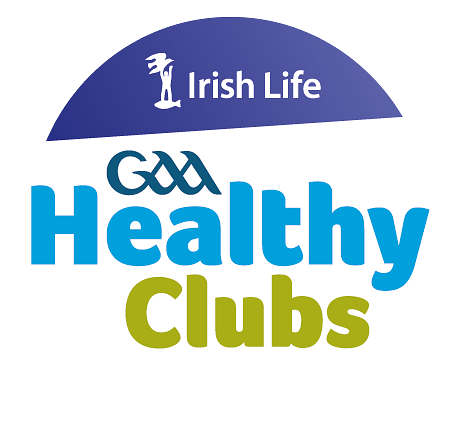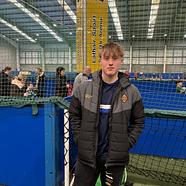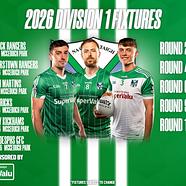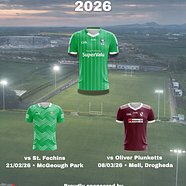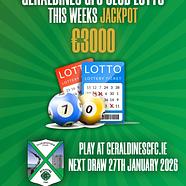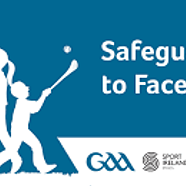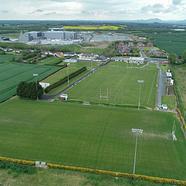Feeding Teens in Sport: A Nutritionist Mum’s Guide
Supporting Healthy Habits for Young Athletes at Geraldines GFC
Teen athletes have big appetites — for food, fun, and football. But with all that growing, training, and learning, it’s not always easy to know how to fuel them properly. As a nutritionist (and mum of sporty teens), I often get asked: What should teens eat to perform well and stay healthy — without obsessing over every bite?
This guide is based on real-life experience, nutrition science, and a big dose of common sense. It’s written for parents and guardians who want to support their teens without falling down a rabbit hole of diet rules or confusing sports trends.
⚽ Do Teen Athletes Need “Performance Nutrition”?
Not exactly — not in the elite-athlete sense.
For most teens, it’s not about strict plans. It’s about eating enough of the right things, regularly. Here’s a rough guide:
- 11–13 years: 2–3 training sessions/week → general nutrition guidance is enough.
- 13–15 years: 3–5 sessions + matches → benefit from intentional fuelling.
- 16–18 years: Daily or multi-sport training → more structured nutrition may help.
Bottom line: most teens just need smart fuelling, not strict regimes.
🏃♂️ Game Day Nutrition: What to Eat & When
The goal is energy and stamina — and that starts with carbs.
- 3–4 hours before a game: Eat a high-carb meal (think pasta, potatoes, rice, fruit, or oats).
- If it’s an early game: Eat a carb-rich dinner the night before.
- Before evening matches: Pack an extra roll or sandwich for after school.
💡 Rough rule:
- Carbs: 55–65% of energy (1–2 handfuls per meal)
- Protein: 15–20% (palm-sized portion — eggs, yoghurt, chicken, tofu)
- Fats: 10–20% (olive oil, nuts, seeds — smaller in portion but high in energy)
📚 Food for School, Study & Exams
Nutrition isn’t just for legs — it’s for brains too.
Encourage meals and snacks that help with focus, mood, and memory:
| Goal | Nutrients | Examples
| Energy | Carbs, healthy fats | Porridge, bread, avocado, olive oil
| Muscle growth | Protein | Eggs, chicken, nuts, yoghurt
| Focus & study | Iron, omega-3s, B-vitamins | Leafy greens, salmon, red meat, eggs
| Stamina | Carbs, antioxidants | Fruit, veg, water, herbal teas
| Recovery | Protein, anti-inflammatory | Oily fish, berries, turmeric, dairy
📣 “Your game doesn’t just rely on your body — it relies on your brain too.” – Denise Wogan
🥪 Smart Snacks Around Training
Teens are busy — and hungry! Here are quick, nutrient-packed snack ideas:
Before Training:
- Toast + chocolate spread + mashed berries
- Banana + peanut butter on oatcakes
- Crackers + cheese + fruit
After Training:
- Rice + beans
- Protein yoghurt
- Low-sugar chocolate milk
- Smoothie with protein powder (whey or pea-based)
👉 Tip: Look at the nutrition label.
- Low sugar = 5g or less per 100g
- High sugar = 22.5g+ per 100g
🍫 Treats, Crisps & “Junk” Food — What’s the Deal?
Cravings are natural — and usually a sign they need more carbs and calories earlier in the day.
Instead of banning treats, try:
- Balanced meals at regular times
- “When it’s gone, it’s gone” for treats
- Involving teens in cooking
- Finishing dinner with a small dessert
It’s about regulation, not restriction.
👧🏽👦🏻 Do Boys and Girls Need Different Nutrition?
Yes — especially during puberty.
Girls:
- Need more iron (red meat, greens)
- May have fluctuating appetites
- Watch for fatigue or low energy
Boys:
- Grow faster → need more calories + protein
- Big appetite? Support it with real food
💬 “Muscle doesn’t come from shakes — it comes from meals, calories, and sleep.” – Ben Carpenter
💧 Hydration & Sports Drinks
Water is the MVP.
- Start the day with a glass of water
- Add hydrating foods: melon, oranges, yoghurt
- For intense sessions, electrolytes may help
- Sports drinks are only needed after 60–90 minutes of hard activity
Signs of dehydration: dark urine, thirst, fatigue, dizziness.
😴 Sleep, Recovery & Routine
Sleep is when teens build muscle, store new skills, and recharge mentally.
- Aim for 8–10 hours of sleep
- A hot shower before bed helps wind down
- Encourage small routines (snack, stretch, shower)
🔁 Remind them: “You’re making the deposits in your health bank — I’m just here to help spot the balance.”
Final Word from the Healthy Club
At Geraldines GFC, we care about the whole athlete — not just the performance on the pitch. That means supporting players in eating well, recovering fully, and enjoying the sport they love with energy and resilience.
Let’s guide our teens with fuel, flexibility, and a healthy mindset — not with food fads or perfection.
📌 If your teen has specific health concerns, please speak to a GP, registered dietitian, or sports health professional.

